Strengthening Worker Rights and Well-Being in Agriculture
Through certification, landscape and community programs, tailored supply chain services, and advocacy, we are helping to protect and promote the rights of farmworkers around the world.
Home / Issues / Human rights / Page 10
The production of many commonly traded goods—coffee, chocolate, tea, bananas, palm oil, and timber—often involves human rights abuses. While progress has been made in recent years, thorny problems such as child labor, forced labor, poor working conditions, low wages, gender inequality, and the violation of Indigenous land rights are still embedded in many supply chains.
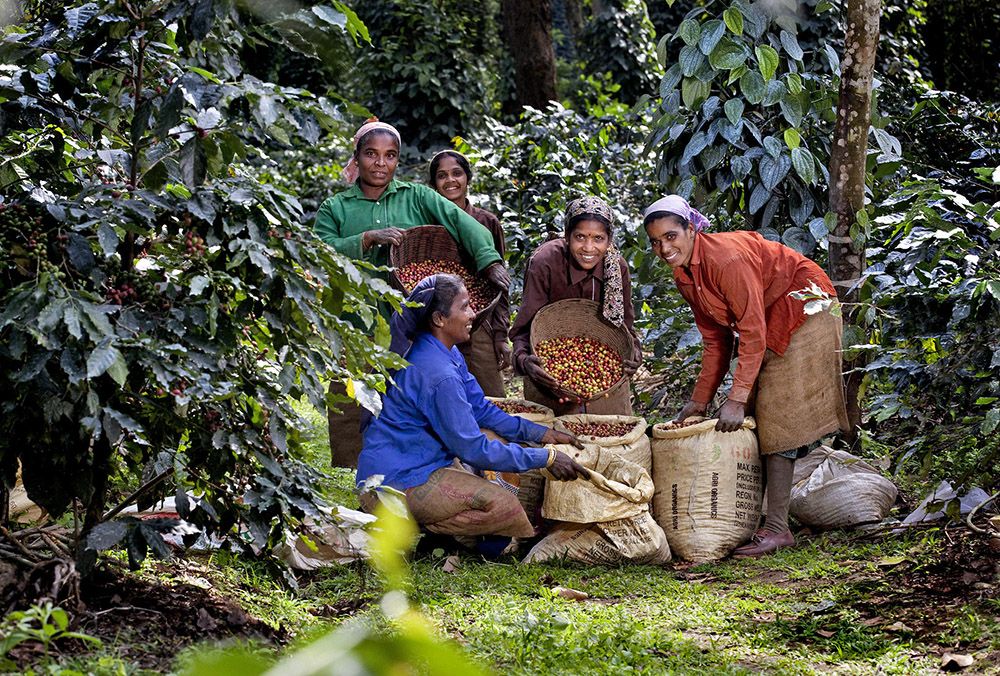
Advancing the rights of rural people goes hand-in-hand with improving planetary health. Project Drawdown cites gender equality, for instance, as one of the top climate solutions, and in our own work, we have seen that farmers and forest communities can better steward their land when their human rights are respected. Everyone deserves to live and work with dignity, agency, and self-determination—and promoting the rights of rural people is key to a sustainable future.
Improving lives and promoting rights of rural communities is a central part of our mission. Our field results, backed by independent studies, demonstrate, for instance, that workers on certified farms are more likely to enjoy better working conditions and important protections.
![]()
of workers on Rainforest Alliance Certified tea estates in Tamil Nadu, India, receive paid annual and sick leave*
In Tamil Nadu, India, a study of 300 farmworkers on seven Rainforest Alliance Certified tea estates and one noncertified estate found a significantly higher percentage of workers on certified estates had contracts and annual paid leave, sick leave, and maternity leave.
*Source: Lalitha N, Nelson V, Martin A, Posthumus H. 2013. Assessing the poverty impact of sustainability standards: Indian tea. Natural Resources Institute, University of Greenwich, London.
![]()
of Rainforest Alliance Certified banana farms studied in Colombia have a health and safety professional for their workers*
A study of 13 newly certified banana plantations in Colombia found health and safety professionals to be practicing on all the farms. These professionals identify risks, conduct trainings, and facilitate medical exams. 50 percent more managers on certified farms than non-certified also reported providing in-kind health benefits to permanent workers.
*Based on 2018 survey of newly certified farms in Colombia (Beekman, G. M. Dekkers, and T. Koster (2019). Towards a sustainable banana supply chain in Colombia; Rainforest Alliance certification and economic, social and environmental conditions on small-scale banana plantations in Magdalena, Colombia. Wageningen, Wageningen Economic Research, Report 2019-019: 1-49)
The Rainforest Alliance brings together producers, companies, governments, nonprofit organizations, and consumers to advance human rights in the landscapes where we work. We work both to transform business practices and government policy, as well as promote the rights of our partner communities within our certification system and sustainable development initiatives.
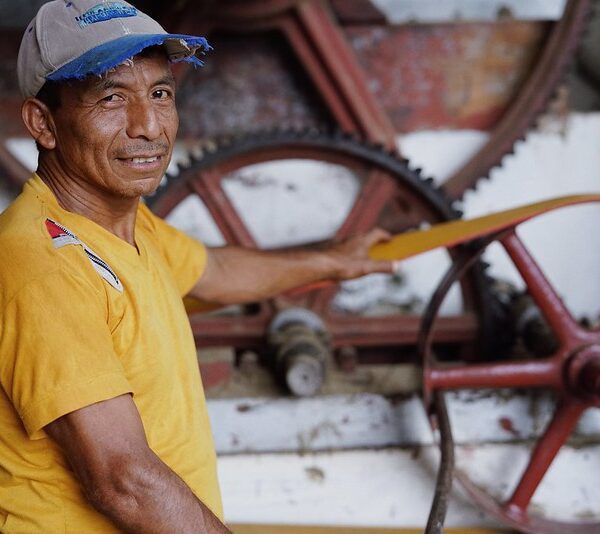
Through certification, landscape and community programs, tailored supply chain services, and advocacy, we are helping to protect and promote the rights of farmworkers around the world.
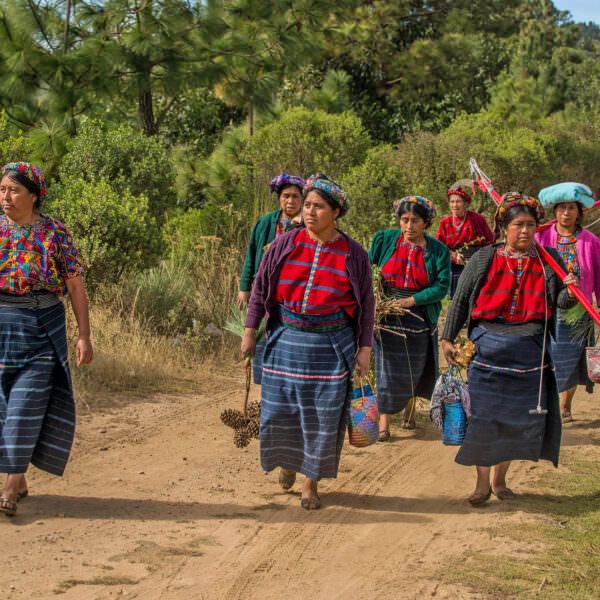
Addressing human rights abuses in agriculture and forestry is a key focus of our work to make responsible business the new normal.
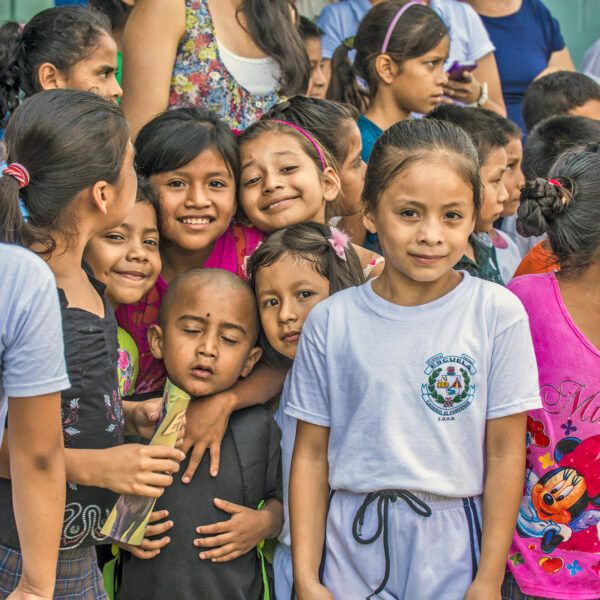
We can all play a crucial role to ensure that all children grow up in dignity. So, who’s with us?
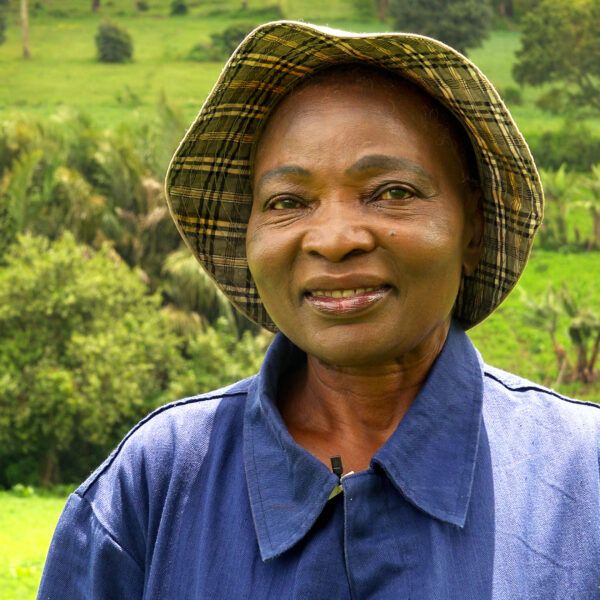
Meet 5 incredible women in sustainability who have successfully transformed their communities and the landscapes around them.
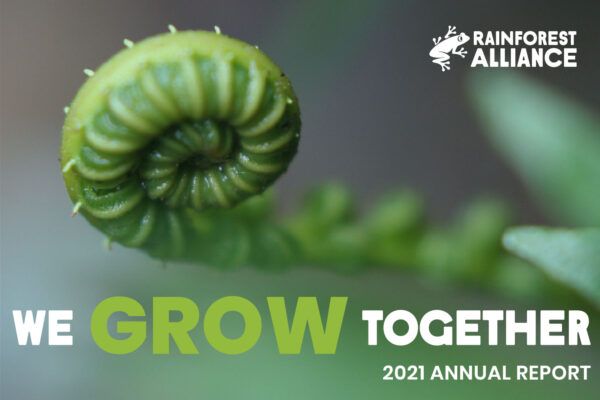
Explore the Rainforest Alliance 2021 Annual Report! Inside you’ll meet the farmers, forest communities, businesses, and individuals who are working with us to create a world where people and nature thrive together.

More than 70 percent of all child labor cases are found in the agricultural sector. While banning child labor on farms is commonly perceived to be a silver bullet, it’s simply not enough. The best way to eliminate child labor is to tackle its root causes, which can include lack of access to education, weak enforcement […]
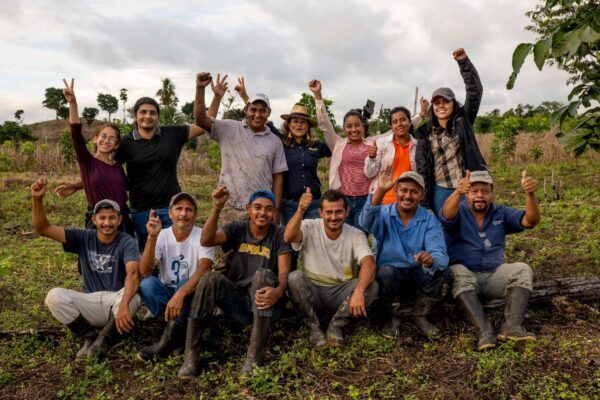
Advocacy complements the other main areas of our work by shaping policies and practices that will affect agriculture, forests, and business for years and decades to come.... Continue Reading
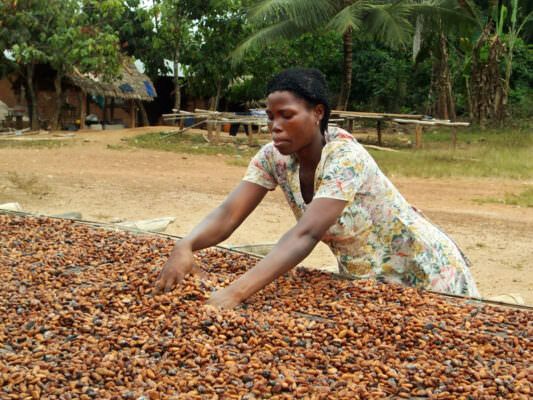
Our assess-and-address approach focuses on prevention, engagement, and improvement of human rights issues, and incentivizes farmers and companies to tackle human rights issues rather than hide them.... Continue Reading

The Rainforest Alliance promotes a gender transformative approach through our four key interventions: certification, landscapes management, supply chain services, and advocacy.

For many companies, having the right tools and resources to effectively monitor and address human rights risks can be a challenge. Without the proper means and expertise, it can be a struggle to identify, address, and prevent these problems. With more than 30 years of experience and expertise, across 70 countries and six key commodities, […]